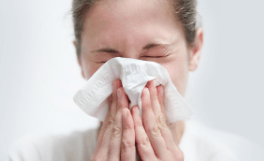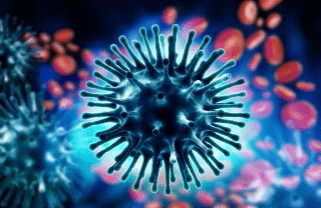H1N1 Flu (Swine flu)
Swine flu is an infection caused by a virus. It’s named for a virus that pigs can get. People do not normally get swine flu, but human infections can and do happen. In 2009 a strain of swine flu called H1N1 infected many people around the world. The virus is contagious and can spread from human to human. Symptoms of swine flu in people are similar to the symptoms of regular human flu and include fever, cough, sore throat, body aches, headache, chills and fatigue.
H1N1 is a type of influenza A virus, and H1N1 is one of several flu virus strains that can cause the seasonal flu. Symptoms of the H1N1 flu are the same as those of the seasonal flu.
Symptoms
The signs and symptoms of flu caused by the H1N1 virus are similar to those of infections caused by other flu strains and can include:
- Fever, but not always
- Chills
- Cough
- Sore throat
- Runny or stuffy nose
- Watery, red eyes
- Body aches
- Headache
- Fatigue
- Diarrhea
- Nausea and vomiting
Causes
Influenza viruses such as H1N1 infect the cells that line your nose, throat and lungs. The virus enters your body when you inhale contaminated droplets or transfer live virus from a contaminated surface to your eyes, nose or mouth. You can’t catch swine flu from eating pork.
When to see Doctor
It’s not necessary to see a doctor if you’re generally healthy and develop flu signs and symptoms, such as fever, cough and body aches. Call your doctor, however, if you have flu symptoms and you’re pregnant or you have a chronic disease, such as asthma, emphysema, diabetes or a heart condition, because you have a higher risk of flu complications.
If you have emergency signs and symptoms of the flu, get medical care right away. For adults, emergency signs and symptoms can include:
- Difficulty breathing or shortness of breath
- Chest pain
- Ongoing dizziness
- Seizures
- Worsening of existing medical conditions
- Severe weakness or muscle pain
Emergency signs and symptoms in children can include:
- Difficulty breathing
- Blue lips
- Chest pain
- Dehydration
- Severe muscle pain
- Seizures
- Worsening of existing medical conditions

Risk Factor
If you live in or travel to an area where many people are infected with the H1N1 virus, you may be exposed to the virus.
Complication
Influenza complications include:
- Worsening of chronic conditions, such as heart disease and asthma
- Pneumonia
- Neurological signs and symptoms, ranging from confusion to seizures
- Respiratory failure
Treatment
Most people with flu, including H1N1 flu (swine flu), require only symptom relief. Supportive care such as drinking liquids, taking pain relievers for fever and headache, and resting may be helpful. If you have a chronic respiratory disease, your doctor may prescribe additional medications to help relieve your symptoms.
Antiviral drugs are sometimes prescribed within the first day or two of symptoms. They can reduce the severity of symptoms and possibly the risk of complications. The U.S. Food and Drug Administration has approved these four drugs:
- Oseltamivir (Tamiflu)
- Zanamivir (Relenza)
- Peramivir (Rapivab)
- Baloxavir (Xofluza)
Prevention
These measures also help prevent the flu and limit its spread:
- Wash your hands thoroughly and frequently:Use soap and water, or if they’re unavailable, use an alcohol-based hand sanitizer.
- Cover your coughs and sneezes:Cough or sneeze into a tissue or your elbow. Then wash your hands.
- Avoid touching your face:Avoid touching your eyes, nose and mouth.
- Clean surfaces:Regularly clean often-touched surfaces to prevent spread of infection from a surface with the virus on it to your body.
- Avoid contact:Stay away from crowds if possible. Avoid anyone who is sick. If you’re at high risk of complications from the flu — for example, you’re younger than 5 or you’re 65 or older, you’re pregnant, or you have a chronic medical condition such as asthma — consider avoiding swine barns at seasonal fairs and elsewhere.
Remedy
you develop any type of flu, these measures may help ease your symptoms:
- Drink plenty of liquids:Choose water, juice and warm soups to prevent dehydration.
- Rest:Get more sleep to help your immune system fight infection.
- Consider pain relievers:Use an over-the-counter pain reliever, such as acetaminophen (Tylenol, others) or ibuprofen (Advil, Motrin IB, others).
Use caution when giving aspirin to children or teenagers. Though aspirin is approved for use in children older than age 3, children and teenagers recovering from chickenpox or flu-like symptoms should never take aspirin. This is because aspirin has been linked to Reye’s syndrome, a rare but potentially life-threatening condition, in such children.
If you have the flu, you can give it to others. Stay home for at least 24 hours after your fever is gone.


